BP Oil Spill Has Lasting Economic Toll Five Years After Deepwater Horizon Explosion
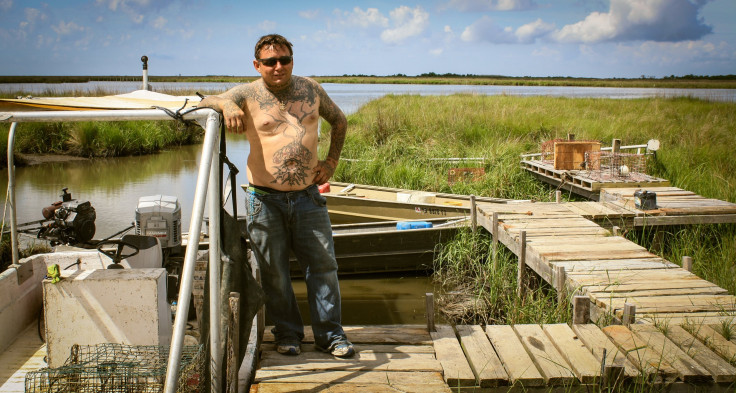
NEW ORLEANS — Before the BP oil spill ravaged Louisiana’s marshlands, Randy Borne pulled in 70 dozen wire crates a day of squirming blue crabs. His traps dotted the swampy waters behind his house near Golden Meadow, a sprawling bayou town 80 miles south of New Orleans.
But five years after the worst offshore oil spill in U.S. history sent millions of gallons of crude spewing into the Gulf of Mexico, Borne says his crab catch has dwindled dramatically. Now, he usually lugs in only about 12 dozen crates’ worth of crabs each day.
“Every year is worse and worse. I'm hardly catching nothing,” he says in a thick Cajun accent from under the shade of his seafood shed. “I think the crabs got affected the most.”
Further down Louisiana Highway 1, to the point where land melts into the Gulf, popular beaches and fishing spots remain closed to visitors as restoration work continues. In Grand Isle, a beach town that suffered the brunt of the spill, thick globs of pudding-like oil still blanket the shores from time to time.
Across the Barataria Bay, in the tiny fishing village of Pointe a la Hache, a once-bustling marina has grown still after the flood of oil and cleanup efforts killed off most of the oyster reefs. Here, Brian Harvey runs Beshel’s Boat Launch, a supply shop that stocks snacks and soda upstairs and boat equipment down below. With the oysters gone, Harvey says he has half as many customers in a given month. “We used to have about 60 to 70 boats fishing here. Now it’s about 10 or 12 shrimping boats,” he says from behind the store counter.
All along the Louisiana Gulf Coast, the BP disaster of April 20, 2010, continues to take an economic toll on business owners, self-employed fishermen and their families. The full scope of damage is still being calculated and debated by government agencies, economists and BP consultants.
BP has so far paid out about $10 billion in claims to individuals across five states who lost income, profit or property value because of the spill. The oil company says the claims money has reduced the economic harm to the region. It also says it overpaid some recipients due to a faulty formula, which overestimated the amount of future damages.
Even so, the payments don’t fully account for the spill’s knock-on effects, economists say. A bait shop owner, for instance, whose customers disappeared in 2010 likely steered clear of restaurants or skipped family vacations, dampening the income of retail and tourist shops. Borne says he and his friends get together less now that he's pinching pennies, a move that means fewer trips to the grocery store and local bars.
The long-term impact to fish and seafood habitats may not be known for decades. And more than 66,000 people still are waiting for BP to review their claims, money that businesses say they could use to expand operations or pay bills.
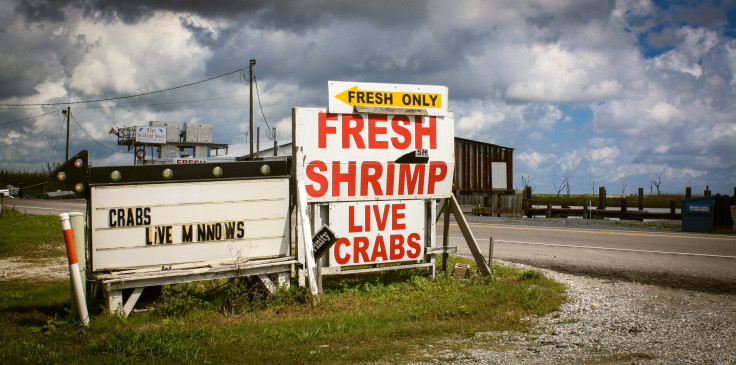
The U.S. District Court for Eastern Louisiana this spring is deciding the amount in civil penalties a BP subsidiary should pay for the Macondo well blowout, which killed 11 rig workers. District Judge Carl Barbier ruled in September that BP acted with “gross negligence” leading up to the fatal explosion, and in January he put the size of the oil spill at 3.19 million barrels.
BP now faces a maximum fine of $13.7 billion for violating the Clean Water Act and crippling Gulf Coast economies. Those penalties would come on top of the $42 billion the company says it already has paid in claims, cleanup efforts, fines and victim compensation related to the oil spill.
“Hundreds of thousands of people were adversely impacted,” says Charles Mason, an economics professor at the University of Wyoming, who testified in January in the civil penalty case on behalf of the federal government. “It was pretty broad-based, pretty pervasive into a variety of lines of business and types of individuals across the states.”
Borne says BP eventually paid him about $30,000 to cover the six months he was forced to stop fishing in 2010. The Macondo well took 87 days to plug, but Louisiana shut down most coastal activities for months or years in some places for fear the oil could continue to spread and to allow for initial cleanup work. The BP money helped Borne get by during the lull, and when the waters opened again, he came back with full force, he says.
But business didn’t exactly recover.
The oil spill coincided with the blue crab’s spawning season, exposing up to 40 percent of offshore larval grounds to oil in the north-central Gulf, biologists estimate. Preliminary assessments show fewer baby crabs are settling into marshes that were contaminated with oil. Damaged ecosystems may “be continuing to affect blue crab populations and distribution,” the National Wildlife Federation said in a March report on the Gulf’s recovery, though the group cautioned “a deeper understanding” of the spill’s impacts on crabs is still needed.
The crab and shrimp Borne did catch soon became harder to sell. “Everybody thought the seafood wasn’t good to eat no more. They were scared to eat it,” he says. “The word of mouth hurt more than anything else over here.” As his crates turn up fewer crabs, Borne says he struggles to make ends meet in the months before and after the summer shrimping season. His wife occasionally stops by the local church to collect a $20 donation toward the family’s grocery bill. “We barely make it to the end of the month. But we make it,” he says.
Louis Blum Jr., the third-generation owner of Blum & Bergeron, which exports dried shrimp, says he worries about his business’s future in light of the spill. “It will never be back,” he says over a plate of boiled crawfish in Houma, the county seat of Terrebonne Parish. “We don’t know how it’s going to affect our seafood, or the environment, for the next 10 years or so.”
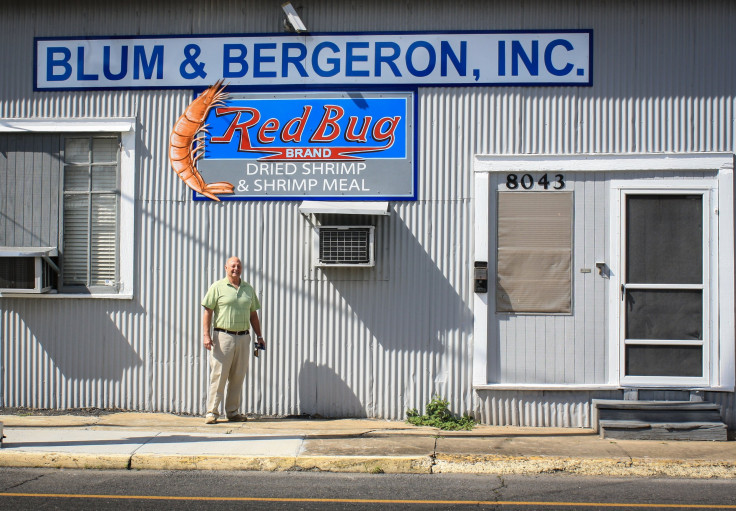
Blum’s company took in around $2.5 million in sales before 2005’s disastrous Hurricanes Katrina and Rita pummeled the regional seafood industry. The dried shrimp exporter was steadily recovering, “and here comes BP,” Blum says. Sales dropped from around $2 million before the spill to about $1.1 million in the year after as shrimp suppliers were forced to abandon their catch and customers grew wary of Louisiana seafood. “It ruined our industry for us for the whole year,” he says. “I came one day from closing the business down forever. I had to let my employees go.”
The company eventually collected about $106,000 from BP, and its sales have since returned to pre-spill levels. Blum also has hired back the seven workers he was forced to lay off. “I pulled every trick under my skin to try to get things going. It’s been a struggle,” he says.
The oil spill has delayed his plans to build a second warehouse in Houma and expand his workforce, two steps he needs to grow the company. He’d like his son in Memphis to move back and help run Blum & Bergeron. “But there’s no money in it. He’d make $40,000 a year less if he went into the family business,” Blum says.
For some communities, the BP disaster ignited the local economy. In Grand Isle, the popular vacation town, nearly every rental home was booked for months as cleanup crews and BP employees swarmed the beaches after the spill. Commercial fishermen and fishing guides who rented their boats to cleanup workers earned significant sums of cash through BP’s “vessels of opportunity” program. Grand Isle’s sales tax revenues jumped more than 20 percent following the spill due to the influx of visitors and incomes.
“It was actually a boon,” says Wayne Keller, the executive director of the island’s port commission. “It was a dog and pony show, though. There was always that thought in the back of your head that, ‘Well, we better make some money now, because we don’t know what’s going to happen after this.’ ”
Jean Landry says the economic boost was little comfort to the island’s permanent residents. The quiet town transformed overnight into a city teeming with strangers. BP staffers policed the beach where people normally strolled and relaxed. “It was such chaos when it all started,” says Landry, a local program manager with the Nature Conservancy. She helped protect the nesting grounds of migratory birds during the cleanup.
The flurry of business didn’t last for long. Beaches remained closed for over three years, and vacationers turned up in smaller numbers. This year, however, that’s slowly starting to change. “This summer feels more positive than any in the last five years,” Landry says. “You see people coming back to their summer homes, rather than renting them out to cleanup workers.”
Just 20 miles up the road, in a town called Leeville, Don Griffin says he feels more frustration than hope.
Five years later, BP still hasn’t responded to his compensation claim, he says. Griffin’s Marina & Ice, the shop he owns with his brother Ben, was virtually empty in the months after the spill. Shrimpers and crabbers forced to sit the season out no longer bought fuel or blocks of ice for keeping seafood fresh.
“Everything was at a shutdown. And we hurt pretty bad,” he says inside the marina’s casual dining hall. His shop, an adjacent seafood restaurant and the motel across the street make up what’s considered “downtown” Leeville.
Griffin says he’s upset that BP quickly compensated fishermen but has stalled on claims for ancillary businesses like his. A check from BP would help him replace his ice-making machine with a newer model, which costs around $350,000. “I’d just like to invest back into my business,” he says. “It’s all the stuff that would secure me into supplying what’s needed for the industry.”
BP has paid about 78 percent of all claims filed so far, though it still is accepting new applications through June 8. Of the claims still awaiting review, about half fall into the “business economic loss category,” according to a February status report.
After oil sullied the area’s estuaries, workers used massive amounts of freshwater to flush out the crude. That, along with natural events, changed the salinity of the oyster reefs and for now has made the reef uninhabitable. In the past, Harvey often kept late hours for fishermen who returned after sunset. Now he closes for a couple of hours every day because business is so slow. “I never got compensated by BP, but I applied,” he says. “I’m still waiting.”
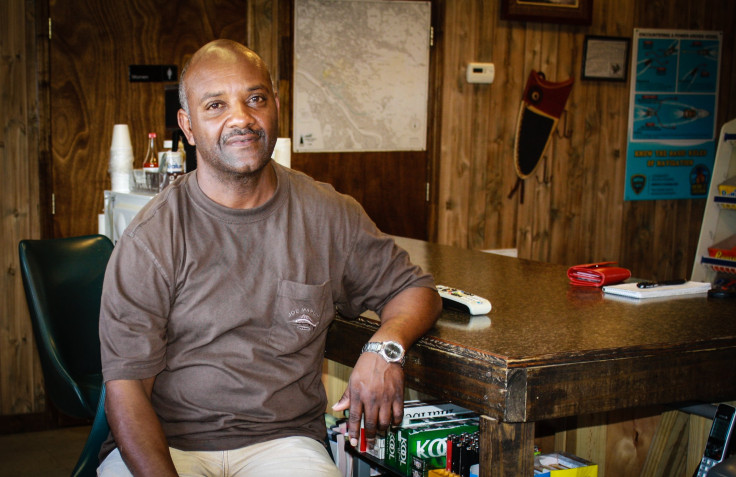
But BP is guarding its purse strings closely. The claims process has slowed as the company seeks to recover what it says are illegitimate claims from a settlement agreement it reached shortly after the spill. “Those awards include $76 million to entities whose entire losses unquestionably had nothing to do with the spill, such as lawyers who lost their law licenses and warehouses that burned down before the spill occurred,” Theodore Olson, a Washington appellate lawyer, wrote in a BP petition urging the Supreme Court to re-examine the agreement. Supreme Court justices in December declined to take up BP’s case.
For Griffin, BP’s hunt for fraudulent claims feels like salt in his wounds. “If they're paying an alligator farmer and don’t know any better, well shame on them,” he says. “The ones they should pay? We’re not getting paid.”
Yet Louisiana residents say no amount of money from BP can replace what they lost: their way of life, a sense of security and a family legacy.
Randy Borne, the crabber near Golden Meadow, says he doesn’t plan to encourage his 2-year-old son to join the trade. Borne, who is in his mid-30s, grew up on his grandmother’s shrimping boat. “We’d shrimp in the summer, and trapped in the winter,” he explains, pointing to a faded picture of his 5-year-old self at an alligator trapping camp. “I never had a regular job. I did shrimping, crabbing all my life.”
With the way the business is going, however, he wants a different life for his son. “There’s no living in it no more,” he says.
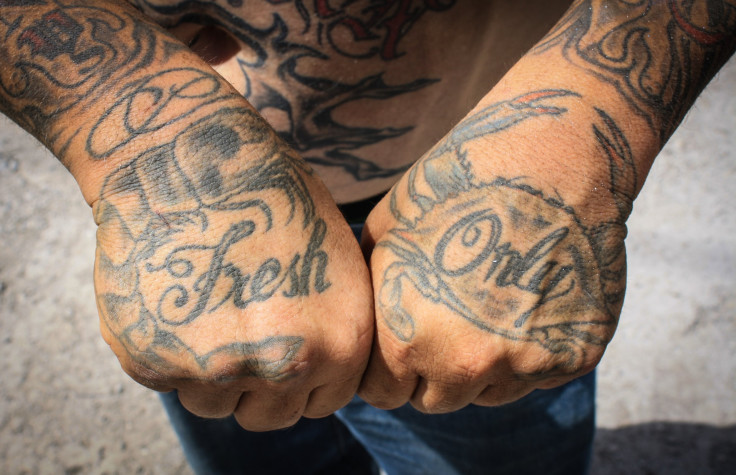
© Copyright IBTimes 2025. All rights reserved.





















